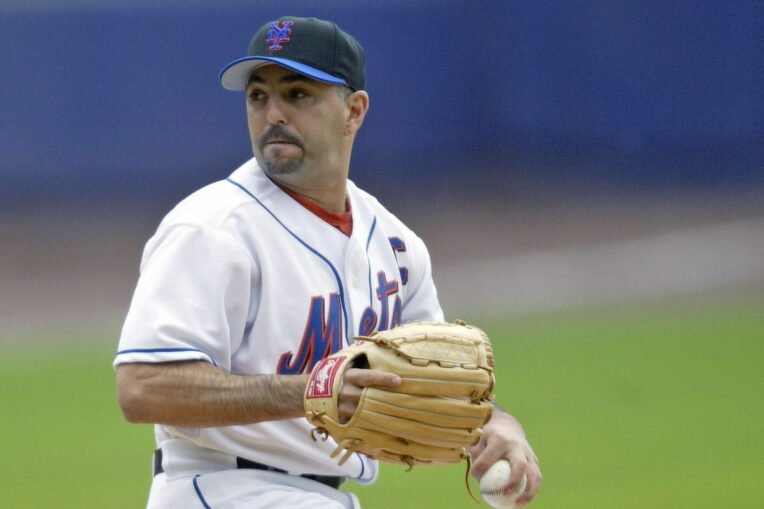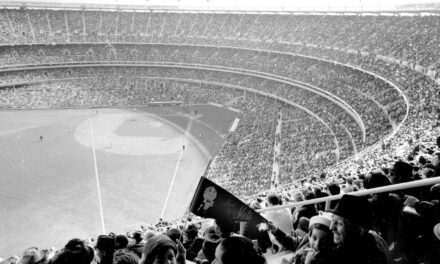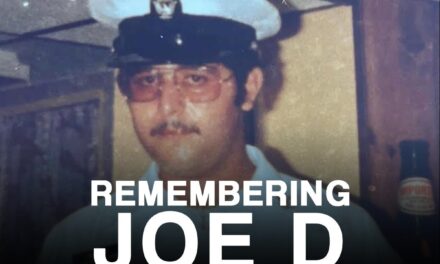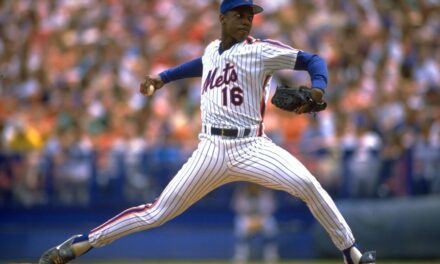
John Franco was not your stereotypical closer. He didn’t strike out many. He didn’t throw 100 miles per hour. But in terms of the end result, he’s among the best ever.
Against the Marlins in the early stages of his 16th major league season, the 38-year-old Brooklyn native reached a milestone only one other relief pitcher had achieved and just four others have gotten to since. It was a significant highlight in a career that would see him get 424 saves — most by any left-handed reliever and currently fifth on the all-time list. His 276 as a Met remains a franchise record.
Franco overcame early skeptics who were convinced his small stature would prevent him from making the big leagues and later criticism for a penchant to create ninth-inning drama. He defied both at Shea Stadium 23 years ago.
Before a crowd of 15,729 on a chilly spring evening, with his wife and brother in attendance, Franco entered in the ninth inning trying to protect a 4-1 lead against the Florida Marlins. After a pair of strikeouts, an uncharacteristic error by Edgardo Alfonzo on a pop-up sustained the drama. But Jorge Fabergas went down swinging on a slider. Franco let loose — jumping up and down before tossing his glove, receiving a bear hug from catcher Todd Pratt, and then being engulfed by his teammates.
“It means a pretty good accomplishment for me,” said Franco, who would go on to convert on each of his first 14 save opportunities in 1999. “Some people don’t believe in the save statistic. It’s a pretty good accomplishment for me to be the second guy in the game to get it.”
This year would turn out to be bittersweet. A partial tear to the flexor tendon of his left middle finger in early July took him out of action until early September. His absence ceded the closer responsibilities to Armando Benítez, a job he wouldn’t surrender.
Franco returned to pitch well in his first-ever postseason, allowing only one earned run in 6.1 innings. He’d stay with the Mets for five more years, during which he made his only World Series appearance in 2000 (earning the win in Game 3) and becoming the third captain in franchise history.
At 5-foot-10 and 170 pounds, he was far from an intimidating presence on the mound. With a repertoire of pitches consisting of changing speeds and pinpoint control, batters were never overpowered. But when it came to represent a city, as he did with the Mets for 15 years, the fit was perfect.















